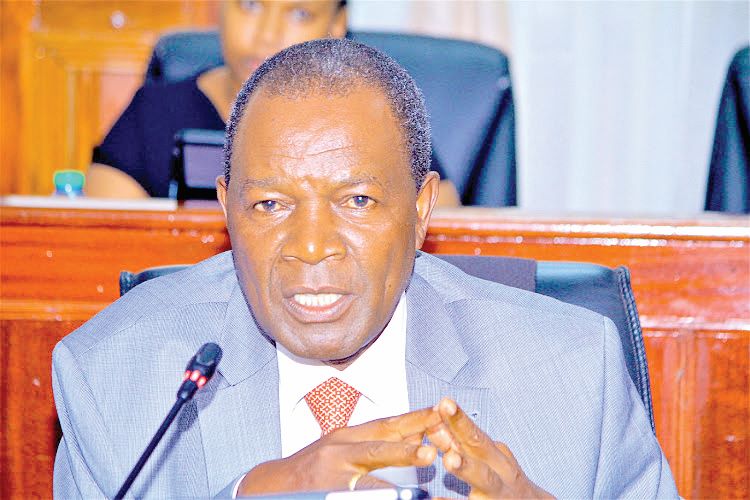Focus on bottom-up agenda as new budgeting process begins

The 2024/25 financial year and medium-term budget preparation process, which began on Friday, will focus on the implementation of the Bottom-up Economic Transformation Agenda (BETA), Treasury Cabinet Secretary, Njuguna Ndung’u, has said.
BETA is geared towards economic turnaround and inclusive growth and aims to increase investments in five sectors with high potential impact on the economy as well as household welfare. These are agricultural transformation, micro, small and medium enterprises (MSMEs), housing and settlement, healthcare and digital superhighway and creativity.
The FY 2024/25 and the Medium-Term Budget will also be based on the Vision 2030 Fourth Medium Term Plan and build on the progress made in the previous financial years, according to the CS.
Ndung’u spoke on Friday when he officially launched the budget preparation process for the 2024/25 finacial year and the Medium-Term budget.
The budget making process will prioritise government projects and programmes in the nine BETA value chains namely: leather, cotton, dairy, edible oils, tea, rice, blue economy, natural resources and building materials.
Value chain approach
“The BETA priorities should be mainstreamed into the regular programmes of Ministries, Departments and Agencies. The planning, and budgeting should therefore continue to embrace the value chain approach to budgeting,” Ndung’u said.
“The value chain approach to budgeting will make sure that there are no funding gaps, no duplications and allows for efficiency in the allocation and use of resources,” he added.
Additionally, the government intends to reduce fiscal deficit to 4.4 per cent of gross domestic product (GDP) by June 2024 down from the current 5.3 per cent. This will be achieved through enhanced revenue mobilisation, reprioritisation and rationalisation of expenditure, and growth of the tax base
“The government is committed to ensuring that there is value for money in public spending. In this regard, the principles of efficiency, effectiveness and economy of public spending will strictly be enforced by ensuring that low-priority expenditures give way to high-priority programmes,” Ndung’u said. The government is cautiously optimistic about the economic prospects for 2024.
While the Kenyan economy is expected to grow by 5.5 per cent in 2023 and maintain that momentum over the medium-term, global GDP growth in 2023 and 2024 is projected to decline from 3.5 percent in 2022 to 3.0 percent.
Speaking during the same event, Treasury Principal Secretary Chris Kiptoo, noted that the government closed FY2022/2023 on a positive note, having collected and disbursed a total of Sh3.24 trillion out of the revised estimates Sh3.62 trillion, an overall performance of 89.6 per cent.
“Implementation of FY2023/24 budget has started in earnest and we are looking forward to the smooth implementation of planned programmes during the remainder of the financial year,” he said.
Government operations
Kiptoo said so far Sh279.6 billion has been released from the Exchequer to support government operations at both the National and County Governments.
The Public Finance Management Act, 2012, requires the process to commence not later than August 30 of the preceding financial year. Ministries, Departments and Agencies should submit their budget baselines to their sectors by September 5 this year while final sector budget proposals should be submitted to the National Treasury by December 6 this year.



